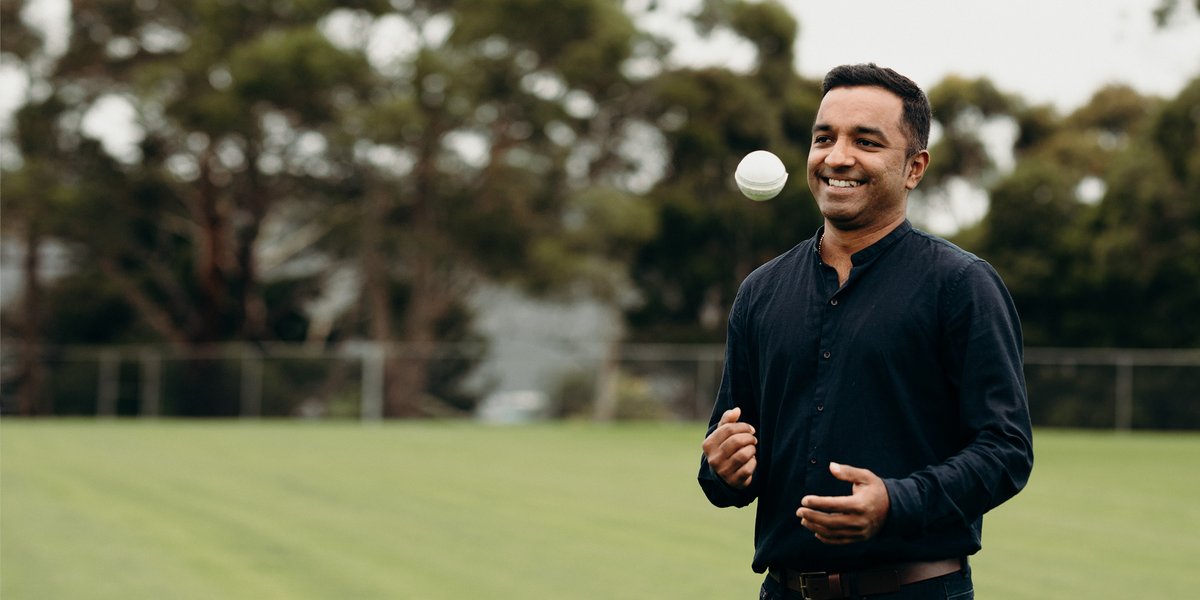Jessica Richmond
"We’re known for our commitments to sustainability and renewable electricity. It only makes sense that this is where the technology is coming from."
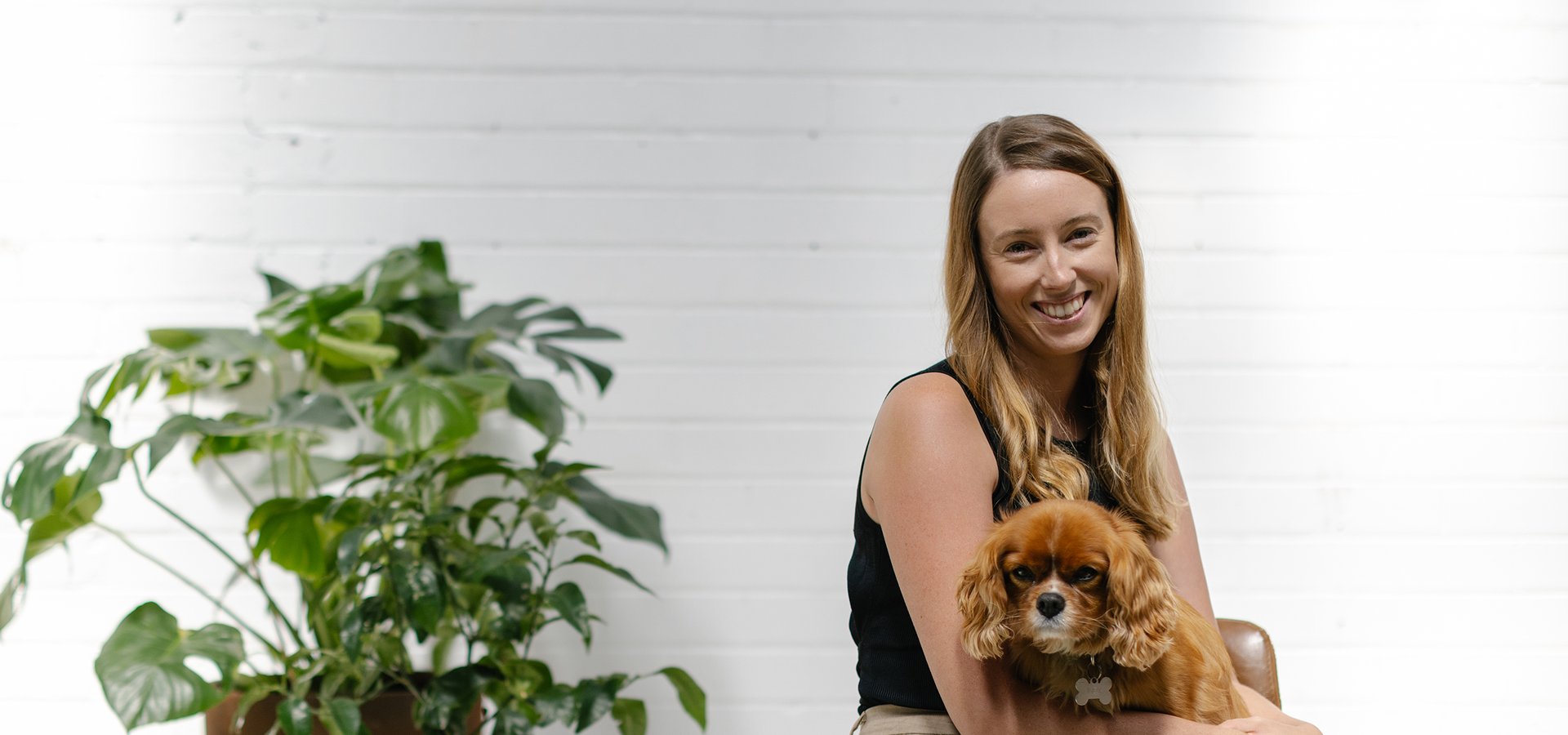
"We had just started and we couldn’t keep up. What size of accounting consultancy did we want to become? Yet if you’re going to go out and run your own operation, you’re doing it because it’s high impact and super inspiring."
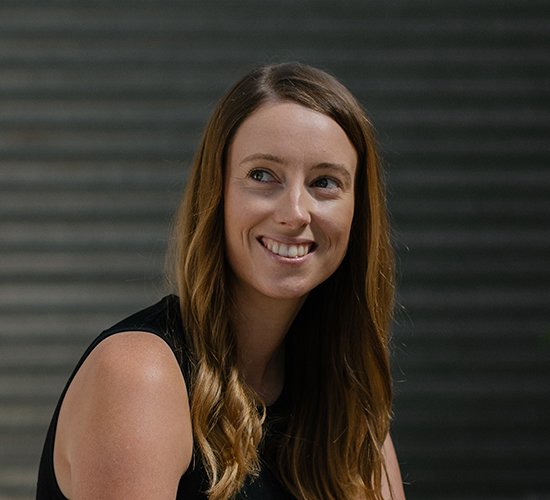
Jessica Richmond grew up in a potato farming community on the North West Coast of Tasmania.
Her father worked in the mines and her mother was a chef in the pub. Her trip to school in the morning was hopping over a fence.
This is not the typical background of a technology CEO.
“When I was sixteen, I desperately wanted to see the world so I applied for a scholarship to study in Italy,” she says. “That was an unusual path and I can’t say Dad loved the idea.”
She understood his concerns. After all, it was a stretch to get Dad to drive through traffic lights let alone travel to the other side of the world. Jessica – Jess – went to Italy, where she gained a new understanding of place and culture: language, food, tradition, industry.
It strengthened her connection to her home, but like a lot of ambitious young Tasmanians of her generation she ended up in Melbourne, studying and then practicing law. Her colleagues called her “the Collins Street farmer.” When she decided, for lifestyle reasons, to move back to Tasmania they thought she was crazy. “You go back to Tassie for your career to die.”
Six years later, Jess is the CEO of a fast-growing tech company at the forefront of global carbon reduction and non-financial accounting, headquartered in Burnie. While it surprises Tasmanians to hear this, “headquartered in Burnie,” the venture capitalists supporting her vision find it perfect.
Jess and her team discovered what she calls the “unfair advantage of living in Tasmania.”
She discovered it slowly, while working in management and strategy for mining companies in the North West. Investors around the world, from leading private equity to sovereign wealth funds, were beginning to incorporate carbon in their decision-making. At its simplest: if you want to partner with us, you better have a plan.

Overnight, companies and countries announced net-zero commitments. Almost no one announced how they were going to do it.
Another Tasmanian who had lived in Europe arrived in the North West. Lindsay Ellis had what Jess calls “fancy degrees,” and worked in management accounting at Grange Resources. She remembers a senior person at the company saying, “We just interviewed this genius kid. Give him everything he needs.”
The genius kid, Lindsay, was quiet and introverted. Jess, however, was joining boards and committees, winning awards, launching herself into new ventures. They misunderstood each other at first, as introverts and extroverts tend to do. “I later told him he was giving off serial killer vibes,” says Jess.
Yet when they started working together it clicked. They both saw a massive opportunity to do what no one seemed to know how to do: use the power of accounting and the passion of accountants to reduce carbon emissions.
They started a consulting business together, Ellis Richmond, fusing their commercial management and accounting experiences with a growing interest in helping companies reduce their carbon emissions.
The business grew quickly, especially in traditional lines.
“We could see it, an easy lifestyle and a totally fine business model, a team of 19 or 20,” says Jess, from her home in Burnie. “We had just started and we couldn’t keep up. What size of accounting consultancy did we want to become? Yet if you’re going to go out and run your own operation, you’re doing it because it’s high impact and super inspiring.”
What was high impact and super inspiring? The idea of devoting their energies to carbon and other emerging, non-financial accounting like biodiversity. If we can’t accurately and meaningfully count carbon, or measure our positive impacts on people and the planet, climate change and environmental degradation could run unabated while we make speeches.
Jess, Lindsay, and the growing team at Ellis Richmond were figuring out new and exciting ways to count carbon, both for companies and their suppliers. This is when “Tassie’s unfair advantage” took hold of them.
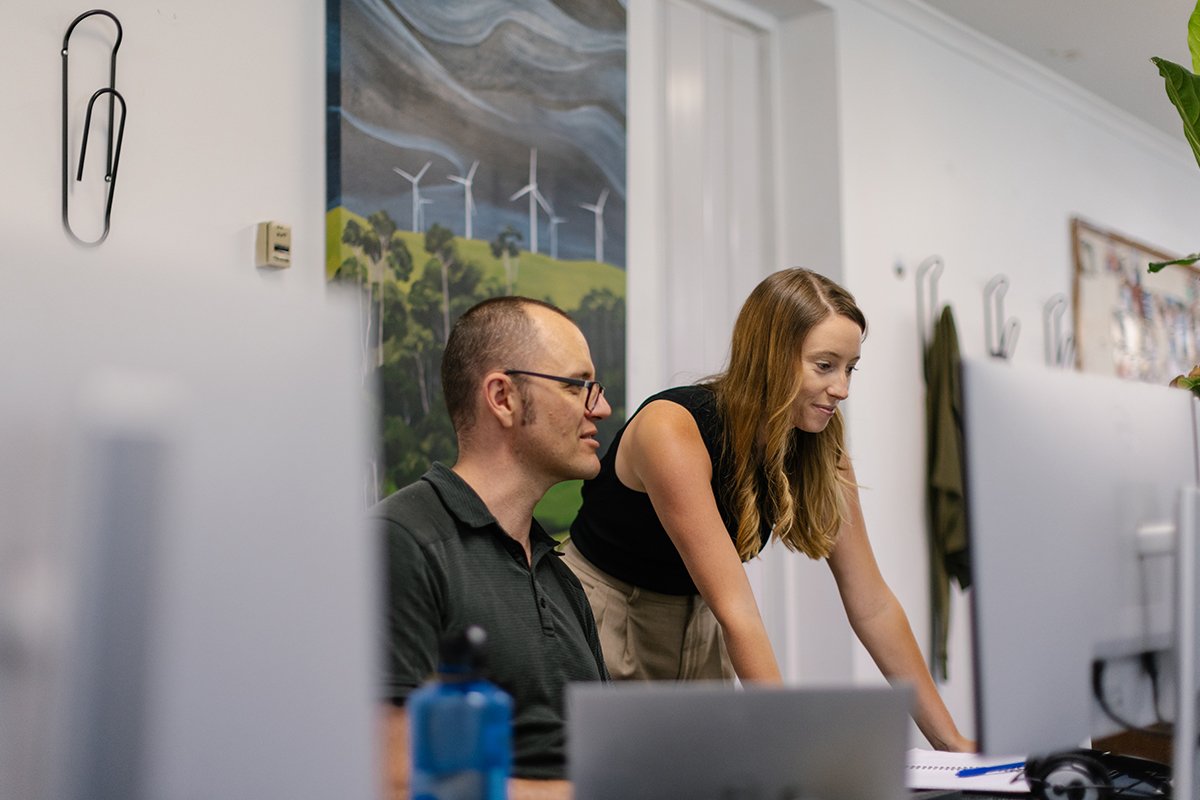
Because of Tasmania’s renewable electricity, we don’t have to worry as much about our power grid. Yet our transportation network is almost entirely fuelled by petrol and diesel, and our carbon footprints as organisations are tied to our suppliers’ and partners’ emissions. The only way to lower our emissions, as businesses and as a community, is to work together.
Tasmania was a perfect workshop: renewable electricity and a highly connected and ambitious business community, people who are keen to give each other a chance to try something new.
Once they figured it out, they realised it was about more than a consulting business. It was something they could scale through software.
“Maybe we could do the whole global scale thing,” says Jess, “but we had to build it for ourselves first.”
They started building the solution, and a lot of customers, before they spoke to venture capitalists. Suddenly Jess was a tech CEO, learning the jargon but also the mind-set. And it happened in 2022, one of the worst years to raise money in recent memory, as the valuations of technology companies around the world were cratering.
Again, it helped to be from Tasmania.
“Our brand and our reputation at the moment is starting to be recognised as a place where we have thought ahead,” she says. “We’re known for our commitments to sustainability and renewable electricity. It only makes sense that this is where the technology is coming from.”
Today, Jess and her team are funded by Blackbird VC, who are helping to connect them with talent and expertise in Australia and around the world.
The name of the company, and the product, designed for accountants want to help save the planet? sumday. The tagline: every cell matters.

We worked with north west Tasmanian photographers Moon Cheese Studio for this Tasmanian story.
Read about more Tasmanians
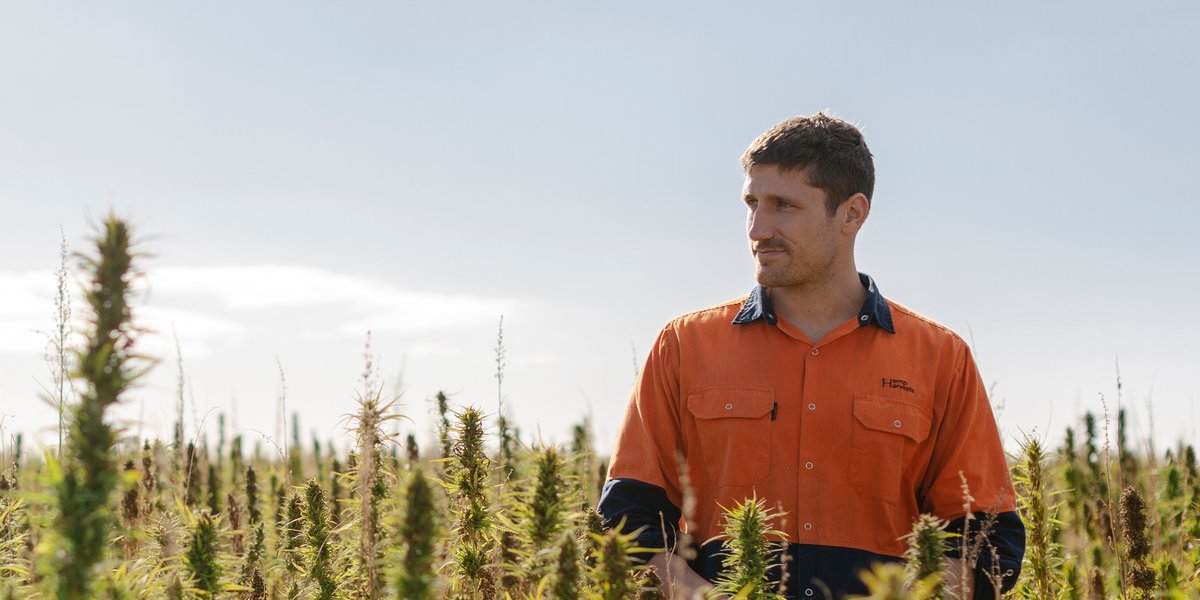
Tim Crow
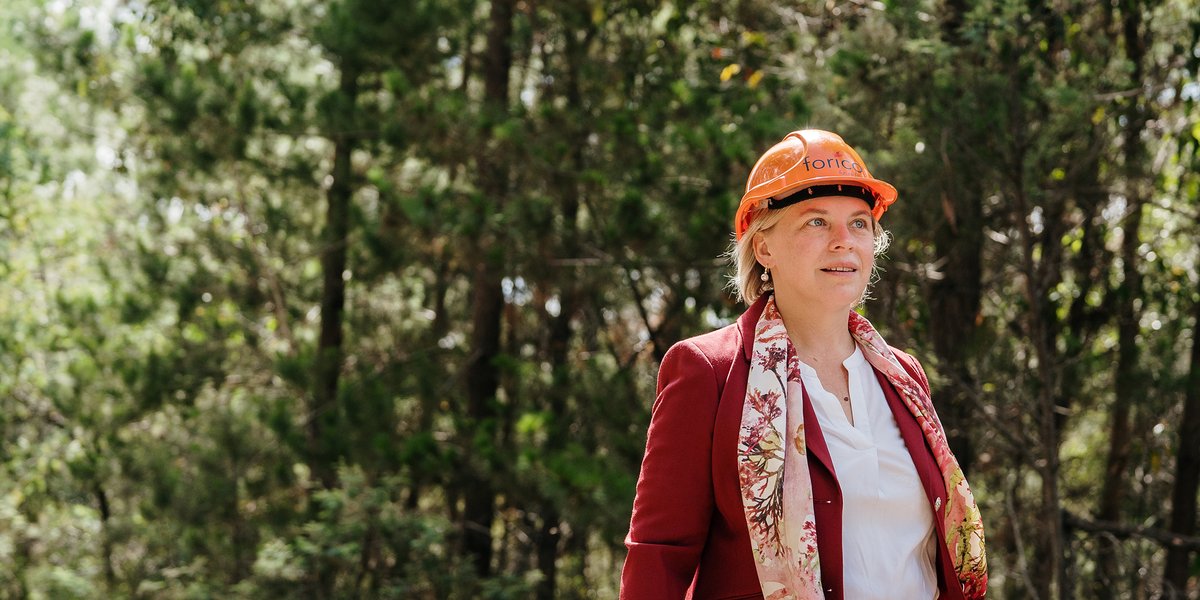
Rayne van den Berg
